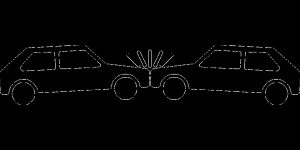Being a passenger in a car accident can be a frightening experience. Unlike the driver, passengers typically have no control over the vehicle and must rely on the driver’s actions for safety. If you’ve been injured in an accident as a passenger, you may wonder about your rights, how to navigate the claim process, and who ultimately bears responsibility. Understanding the steps to take after the accident can help you recover both physically and financially.

In this guide, we’ll cover what to do if you’re injured as a passenger, including insights on determining who is at fault and securing compensation for your injuries.
Immediate Steps After the Accident
The moments after a car accident can be overwhelming, especially if you’ve sustained an injury. However, taking specific actions right away can help build a strong case for any future claims.
- Seek Medical Attention: Even if your injuries seem minor, it’s crucial to get checked by a medical professional. Injuries from car accidents may not be immediately apparent, and getting prompt medical attention helps document your injuries, an important step for any future car accident claims.
- Document the Scene: If you’re able, take photos of the accident scene, vehicle damage, and any visible injuries. Collect information from all drivers involved, including their contact details and insurance information, as this can be vital evidence if you pursue a claim.
- Gather Witness Information: Witnesses can provide objective accounts of the accident. Be sure to get their contact information, as their statements may help clarify fault.
Who Is at Fault?
Determining who is at fault is a critical aspect of any car accident claim, and it can impact how compensation is awarded. As a passenger, you typically don’t bear any responsibility for the accident, but identifying the responsible party is essential for filing claims.
- The Driver of Your Vehicle: If the driver of the car you were in is found at fault, you may be able to file a claim against their insurance. Many passengers are hesitant to pursue claims against friends or family members, but it’s important to remember that insurance exists to cover such situations and help with medical costs and other losses.
- The Other Driver: If another vehicle’s driver is responsible for the accident, you can file a claim against their insurance for compensation. This is often the route taken when the other driver was negligent, such as by speeding or failing to observe traffic signals.
- Multiple Parties: In some cases, fault may be shared between drivers. Known as comparative negligence, this approach assigns a percentage of fault to each driver involved. As a passenger, you can potentially file claims against both parties’ insurance policies, depending on the state’s laws and the circumstances of the accident.
An attorney can help evaluate your options if fault is unclear or shared, ensuring that you have a clear understanding of which party’s insurance to approach for compensation.
Filing a Car Accident Claim as a Passenger
As an injured passenger, you have several options when it comes to filing a claim. Here are the primary avenues for recovering compensation:
- File a Claim Against the At-Fault Driver’s Insurance: Whether it’s the driver of the car you were in or the driver of another vehicle, filing a claim against the at-fault driver’s insurance is common. This compensation can help cover medical expenses, lost wages, and other accident-related costs.
- Use Your Own Insurance: If you have personal injury protection (PIP) or medical payments coverage under your own auto insurance, you may be able to use these policies to cover your medical expenses. PIP coverage is especially useful if you need immediate assistance with bills while waiting for a liability claim to resolve.
- Pursue a Legal Claim: In cases where insurance coverage is insufficient to cover your expenses, you may consider pursuing a personal injury lawsuit. Consulting with Harrell and Harrell, an auto accident attorney in Jacksonville, can help you understand your rights and determine the best course of action for securing fair compensation.
Recovering from a Car Accident
The physical and emotional toll of recovering from a car accident can be significant, especially if injuries are severe or require long-term treatment. In addition to focusing on your health, it’s important to understand that recovery may also mean pursuing compensation for the full scope of your damages, including pain and suffering.
Rehabilitation expenses, therapy, and other medical treatments can add up, and filing a car accident claim can help alleviate the financial strain that often accompanies a serious injury. Keep detailed records of your medical treatments, rehabilitation progress, and any ongoing symptoms, as these can be important factors when determining your total compensation.
Moving Forward
Being injured as a passenger in a car accident can be a challenging experience, but understanding your options and taking the right steps can help you secure the compensation you need to recover. By knowing when to file a claim, identifying who is at fault, and working with an experienced attorney, you can ensure that your rights are protected.
For more information on your legal options and next steps, don’t hesitate to consult with a professional to guide you through the process. With the right approach, you can focus on your recovery and move forward with peace of mind.






